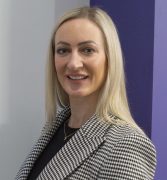BBC Panorama report reveals “toxic culture” of abuse with staff mistreating patients at mental health unit, where failings had previously led to a patient death
An undercover BBC reporter filmed staff at the Edenfield Centre in Prestwich swearing at patients, slapping and pinching them, using restraint inappropriately and patients being secluded for lengthy periods.
The Edenfield Centre is a medium secure unit, intended to care for people held under the Mental Health Act who are at serious risk of harming themselves or others.
The undercover reporter, Alan Haslam, spent three months as a support worker inside the unit, following whistle-blower allegations about poor staff behaviour and patient safety at the hospital. Alan was wearing a hidden camera and recorded the following:
-
Staff swearing at patients, mocking and taunting them and joking about their self-harm;
-
Patients being unnecessarily restrained;
-
Patients being slapped and pinched by staff on occasions;
-
10 patients being held in small seclusion rooms, designed only for short-term isolation to prevent immediate harm, for days, weeks and even months; and
-
Patient observations, a crucial safety measure, being regularly missed and staff told to falsify observation records.
The BBC footage was shown to Dr Cleo Van Velson, a consultant psychiatrist, who said the footage showed a “toxic culture” among staff of “corruption, perversion, aggression, hostility, lack of boundaries” and which was undermining patient recovery.
Greater Manchester Mental Health NHS Foundation Trust, which runs the unit, said it was taking the allegations “very seriously”. A number of staff members have been suspended and the Trust said it is working with Greater Manchester Police, the Care Quality Commission, and NHS England “to ensure the safety of these services”. Greater Manchester Police have opened a criminal investigation to look into the allegations.
Issues highlighted in the documentary are very similar to some cases that we have seen in practice here at Farleys, some with tragic consequences.
Inquest into the death of Julianne Simpson
The inquest into the death of Julianne Simpson was held in December 2017 at Greater Manchester North (Rochdale) Coroner’s Court. The jury heard that Julianne had died by accident after choking on a 60ml medication pot.
At the time of her death, Julianne was a detailed patient at the Edenfield Centre and had been kept in seclusion continuously since January 2016 until her death in March 2017.
The recent Panorama investigation revealed how patients were kept in seclusion for long periods, which is something that Julianne also had to endure. The family had been advised by the Trust that Julianne was not kept in seclusion due to her own actions, but that there may have been a threat against her by another patient.
Julianne was awaiting a transfer to high security conditions at Rampton Hospital. She exhibited a number of symptoms of paranoid schizophrenia, including serious self-harming behaviour. She had a continuous problem of harming herself and others, which included creating ligatures and self-harming by swallowing items.
Julianne was in seclusion whilst on Buttermere Ward and was then transferred to Hayeswater Ward, where she was continued to be kept in seclusion. At Hayeswater Ward, she was not permitted to have ordinary clothing, was prevented from having any day-to-day articles in her ordinary possession, was kept under continuous observation and her medication regime was under continuous supervision. Despite the level of monitoring and supervision, Julianne was able to repeatedly self harm and was subject to restraint on a number of occasions.
Julianne frequently reported hearing voices and experiencing command hallucinations. She told staff that it was the command hallucinations that led to her swallowing items and choking, rather than any desire to end her life.
A specific protocol had been put in place to address Julianne’s risk of choking and suffering death or physical injury from such choking. Julianne had choked on items including food, paper and toilet paper. She also previously had an incident where she choked on a slipper sock and became unconscious. Instructions in place at the time that Julianne died included that she be provided medication in a plastic cup rather than a paper cup as a paper cup posed a risk of swallowing. At no point was there any formal risk assessment of the plastic cup used to provide medication.
On 2nd March 2017, staff provided medication to Julianne in a plastic medication cup and Julianne forced this into her mouth which caused her to choke, leading to her falling into unconsciousness and she sadly died following this.
The jury concluded that the lack of communication between the managers, clinical staff and their subordinates resulted in a lack of clarity on how Julianne’s medication would be administered. The risk assessment of the medication pot was found to be inadequate and hence the use of the 60ml pot was inappropriate.
Julianne’s family were represented by Kelly Darlington, head of Inquests at Farleys Solicitors, and Stephen Simblet of Garden Court Chambers.
Recent deaths at the Hospital
Farleys also represent the families of Rowan Thompson, whose inquest is listed to begin on 24th October 2022, and Charlie Millers, whose inquest is listed to begin on 30th January 2023, both at Greater Manchester North (Rochdale) Coroner’s Court.
Rowan and Charlie are two of three deaths of young people within a nine-month period at other units at the Prestwich facility.
These matters also highlight the concerns around systemic issues regarding the observation of patients at the Prestwich facility. Patient observations are a crucial safety measure to safeguard patients and the BBC Panorama investigation highlighted that observations on the adult wards were frequently missed or carried out poorly and a nurse was recorded telling a support worker to falsify the records, leading to questions around whether this is a hospital-wide issue.
Farleys’ expert inquests team have experience of representing bereaved families at inquests into the death of their loved ones as they seek answers and justice. Find out more about how we can help here or, to speak to a member of the team in confidence, please call 0845 287 0939, contact us by email or use the chat button below.






